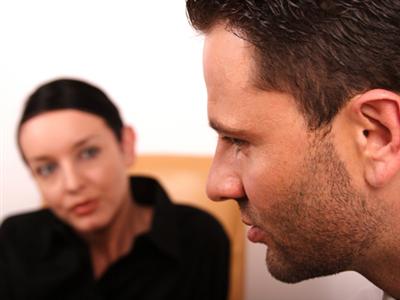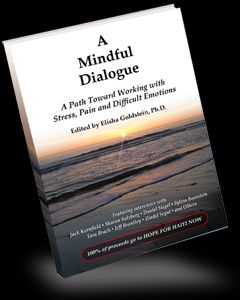
This month Guideposts magazine published my story about the morning I met Dr. Smith at the Johns Hopkins Mood Disorders Center. It read a little bit like a fairy tale … as soon as I met the right psychiatrist, I was fixed for good! And I never, ever cried again.
I didn’t have room to give all the details … like that it took a few months to feel good again … and there was a lot of work being done on my end … and that even today I have plenty of bad days. I suspect that because the story was so simplistic and ended with glass slippers fitting perfectly on my dainty feet that it has been generating a lot of mail for me, most of the notes asking this question: “How do I get myself one of those good doctors who can fix me?”
Dr. Smith told me during one session that it can be as long as 10 years before someone with depression or bipolar disorder seeks care. Treatment is often successful pretty quickly, but not always. It is more common for someone to have a delay in getting the correct diagnosis if they have bipolar disorder rather than unipolar depression, and especially if their illness presents mainly, or almost exclusively, as depression, as mine did. I am certainly not the only depressive who has had to shop around for the right psychiatrist like a working mother does a suitable nanny, and who has tried on a few too many misdiagnoses.
Have I learned anything in my psychiatric odyssey that could be useful information for the depressed Joe?
Yes, actually, I have.
I’ll spare you all of the details and get to the point:
1. Go to a teaching hospital to get a psychiatric consultation.
Try the psychiatry department of a large university or college. Because the psychiatrists there will be less likely to take the samples from the cute pharmaceutical reps and be lazy about reading all the research today on which drugs work and why. Like my doctor, these psychiatrist will probably be more willing to stick with the older, dependable, well-researched drugs like lithium and the older tricyclic antidepressants that won’t get them rich but that have an impressive track record.
2. I found the right treatment at the Johns Hopkins Mood Disorders Center. You could start there too. Because they have a list of referrals–trained psychiatrists all over the country.
3. Also, you might consider some of the other steps in my recovery program that I describe in my post “The Lessons of Depression,” like paying attention to diet, sleep, and exercise. I would advise anyone struggling with depression to start there. Sometimes those three adjustments are enough.
4. And if you are having a hard time hanging on, you might want to read “12 Ways to Keep Going” or watch my video called “I WILL Get Better.”
5. Many of you may need some support. I urge you to join a support group. I formed Group Beyond Blue about two years ago as a place where depressives and persons suffering from all kinds of mood disorders could exchange information on doctors, med side-effects, insurance hassles, work situations, and relationship complications. You may want to start there to find out about other support groups that people are involved in.
6. Keep these hotlines handy, and call them if you are experiencing suicidal thoughts:
- Suicide Prevention Lifeline 1-800-273-TALK
- Suicide & Crisis Hotline 1-800-999-9999
- Panic Disorder Information Hotline 800-64-PANI
Other helpful numbers:
- Mental Health InfoSource 1-800-447-4474
- National Alliance on Mental Illness (NAMI) 1-800-950-NAMI (6264)
7. Whatever you do, do not lose hope. The right psychiatric care is available.
I want all of you who have written to me to know that I keep you in my prayers, that I am rooting for you, and that I wish you peace and serenity.
* Click here to subscribe to Beyond Blue and click here to follow Therese on Twitter and click here to join Group Beyond Blue, a depression support group. Now stop clicking.

